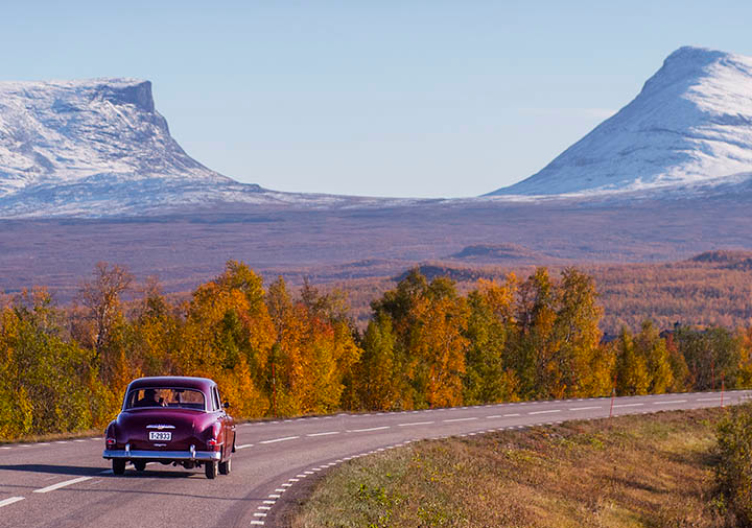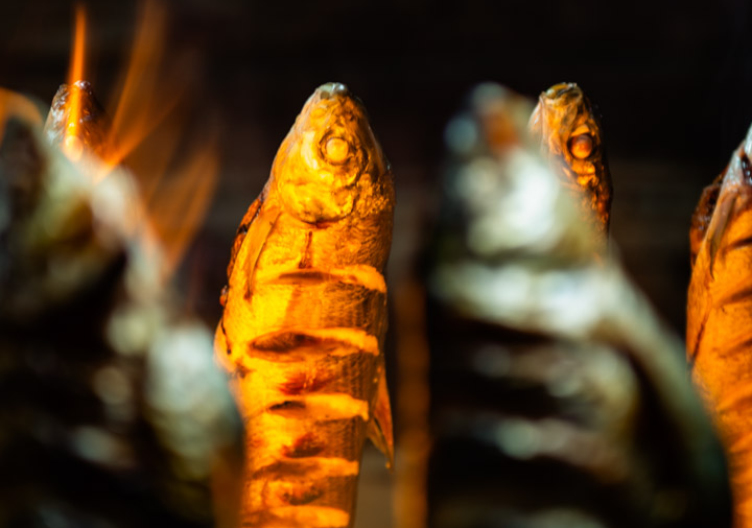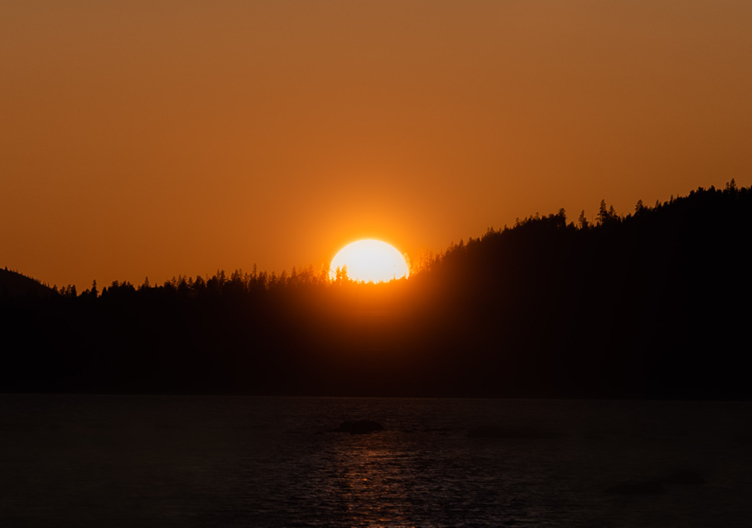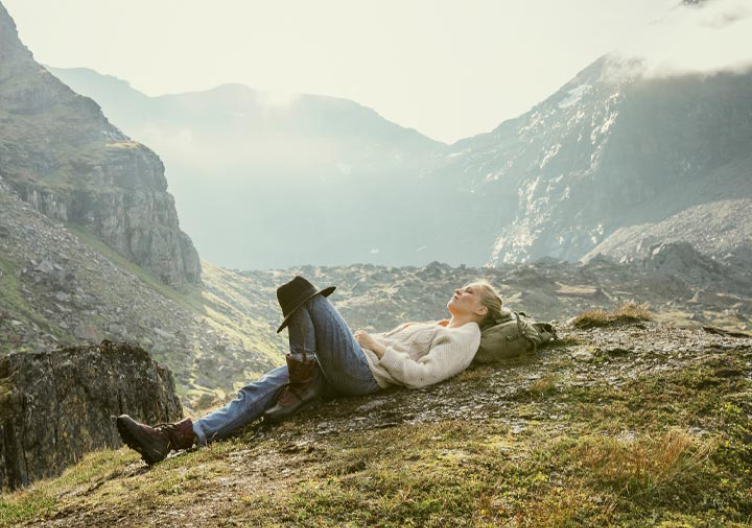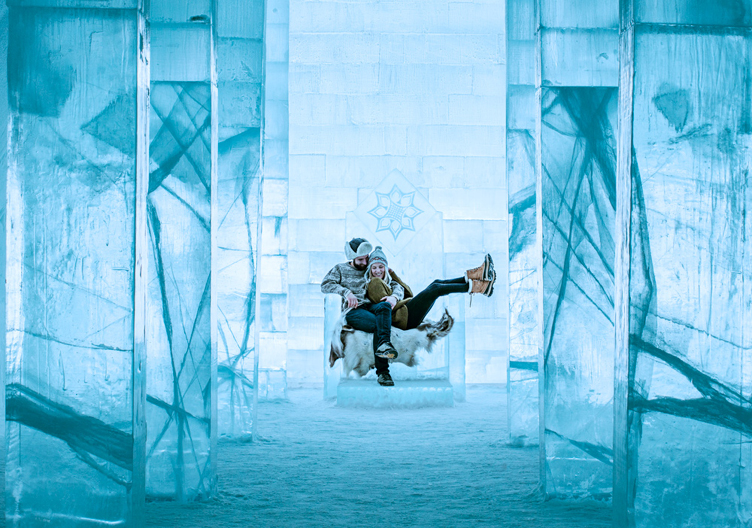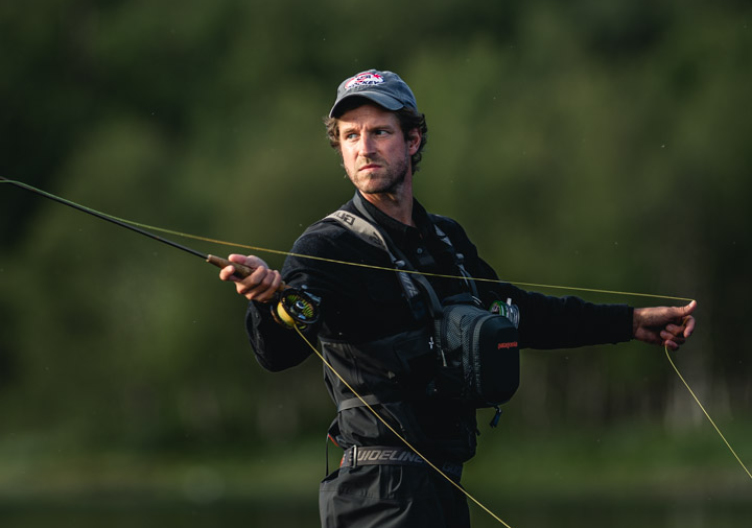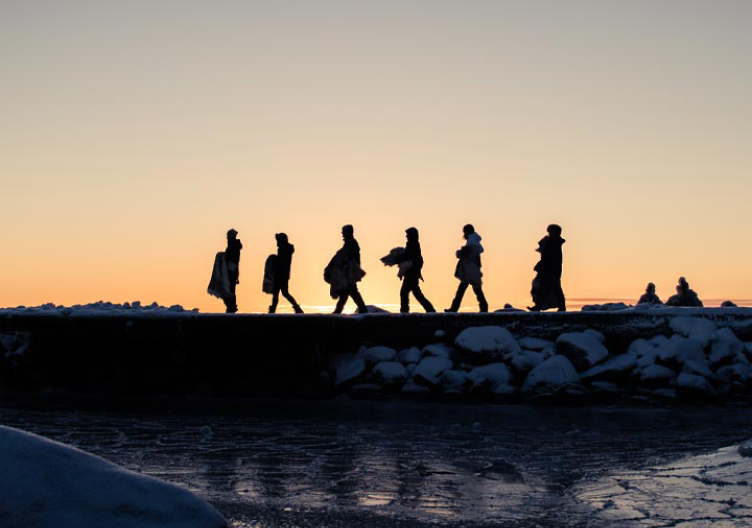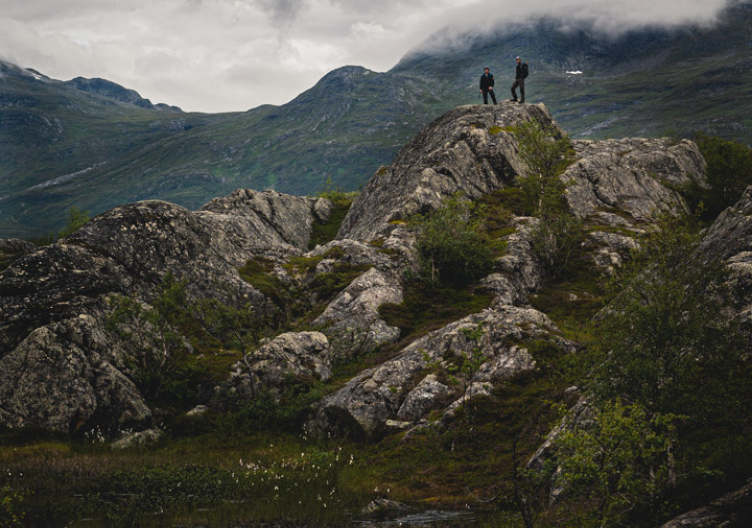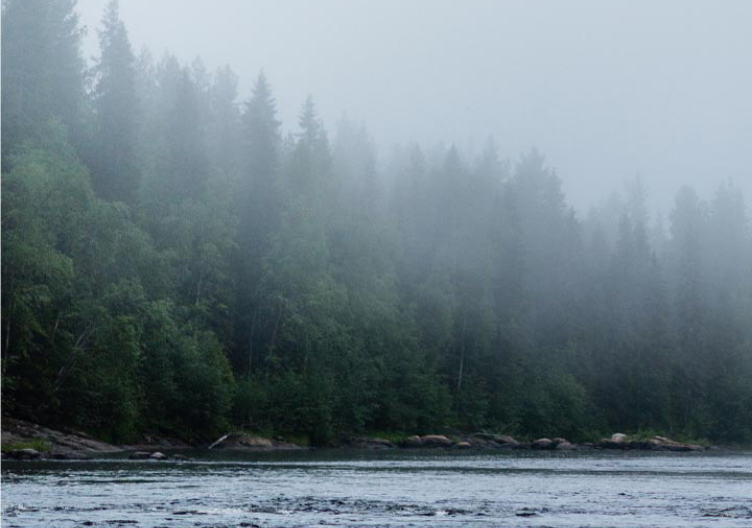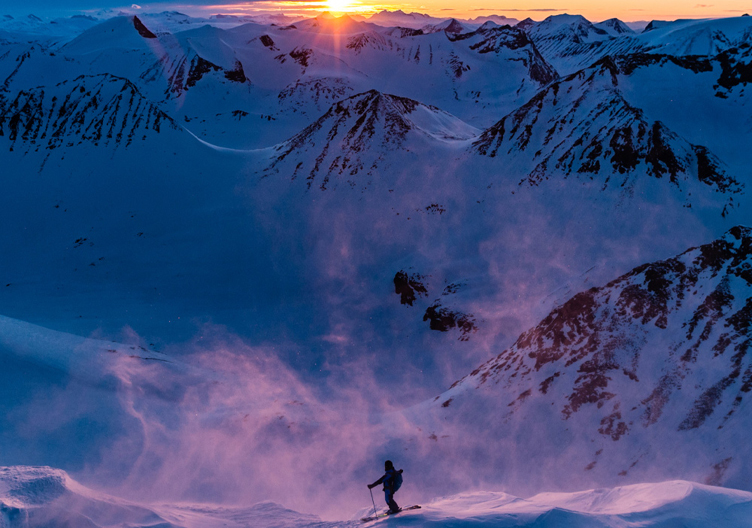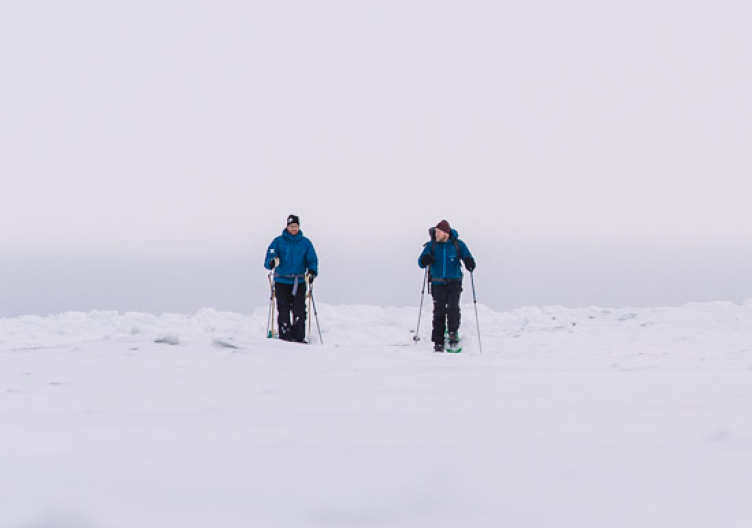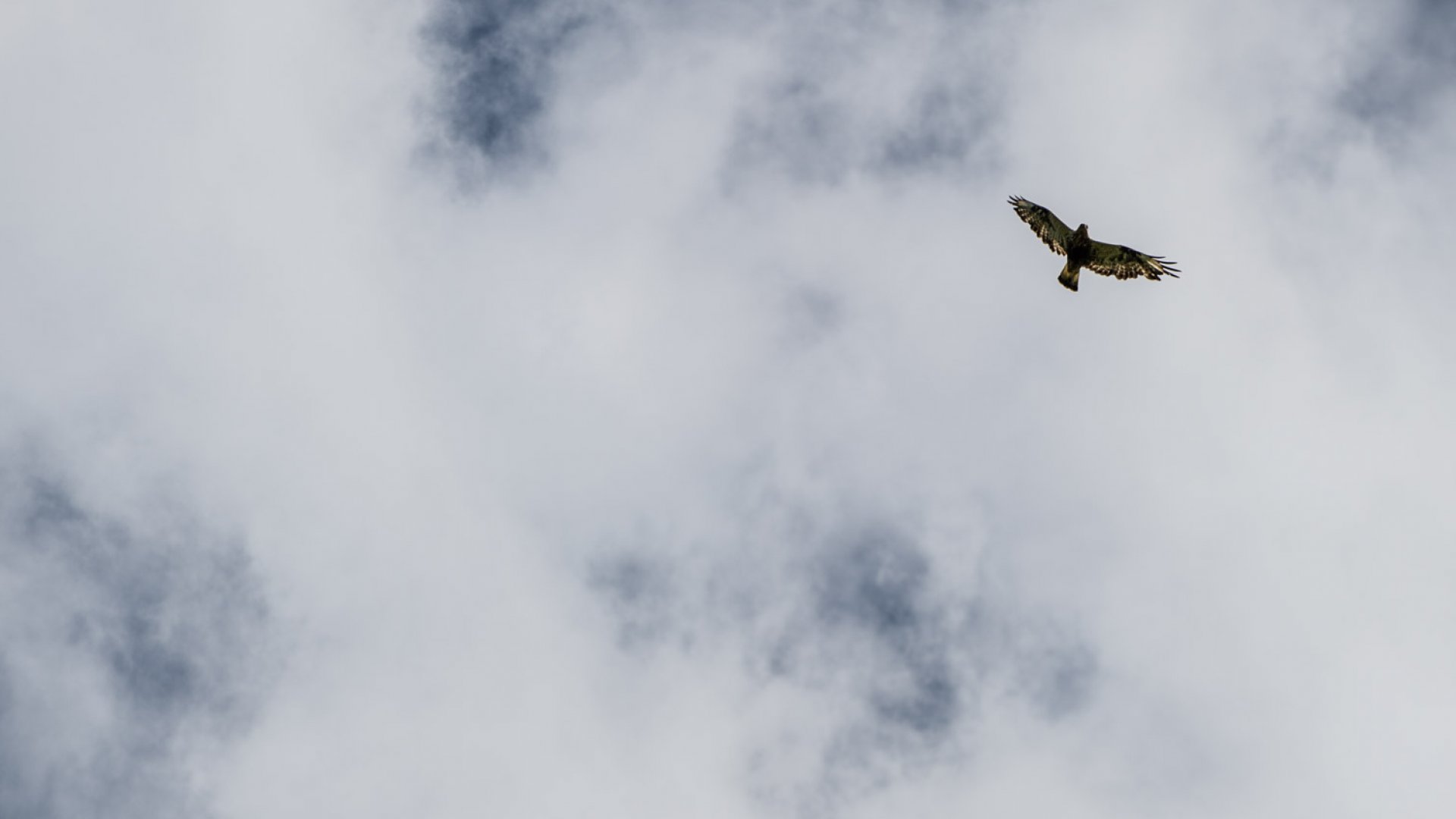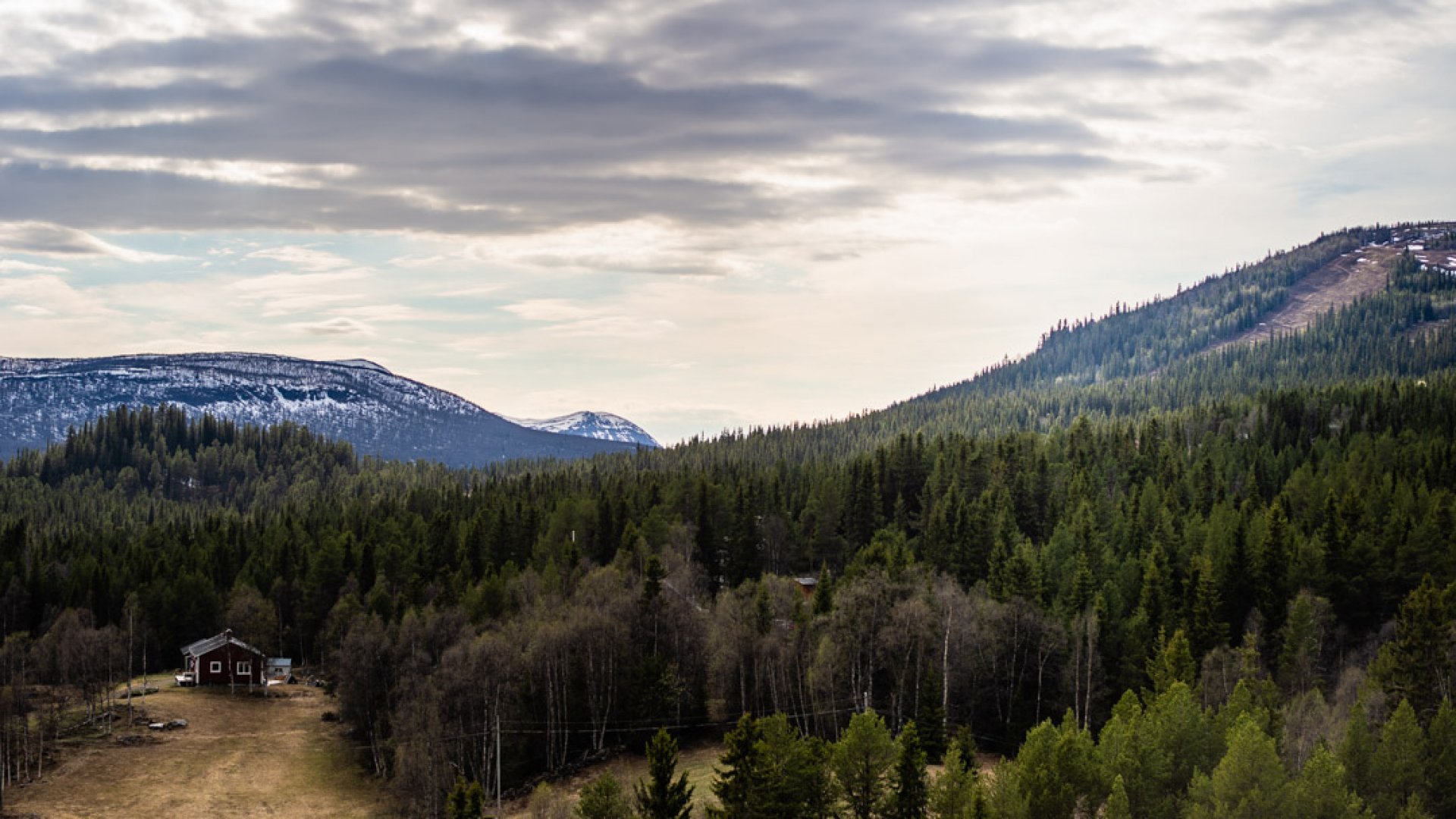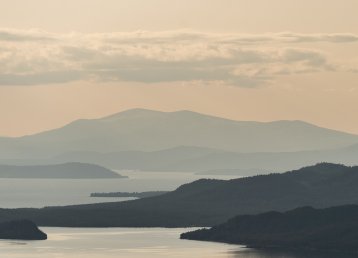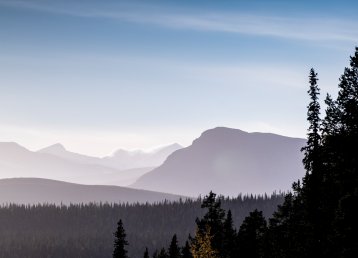My first contact with ecotourism was during a visit to Geunja the Sámi Eco Lodge. It is located beyond the end of the road, in the beautiful mountain landscape that surrounds Ammarnäs. Something happened to us there. We left Geunja as changed people, with an unforgettable memory to carry close to our hearts. For a few days, we lived completely in tune with nature: we ate when we got hungry and slept when we got tired. We dozed in the sun on shale stones by the beach and enjoyed the air of the bright summer night. We woke up greeted by pale dawn, watched the wildlife around the corner and listened to amazing stories about Sámi culture. During those days, it was like everything else just disappeared.
With a gentle touch
It isn’t easy to pinpoint the magic itself. Of course, it had to do with the surroundings: the blue mountains clad in tiny mountain birches, the crystal-clear water and the sea of flowers: alpine sow-thistle, angelica and the straight-backed monkshood. It was also related to the gentleness and quality that permeated everything, from buildings to the guided tours; and it was about the warm, lovely hosts and all the things we learnt along the way.
Our hostess would perhaps point to ecotourism as the crucial ingredient and common denominator – a certain approach to the surrounding culture and nature that provides guests with a more in-depth experience.
Small-scale
Another part of Swedish Lapland, in the middle of World Heritage Laponia, is home to Sápmi Nature Camp. Just like at Geunja there are cultural buildings here, but instead of Geunja’s southern Sámi peat hut and greying timber buildings, Sápmi Nature Camp is made up of northern Sámi tent huts. Regardless of which: this is sustainability in practice. Buildings that can be removed without leaving a single trace.
“Regardless of which: this is sustainability in practice. Buildings that can be removed without leaving a single trace.”
Lennart Pittja, the founder of Sápmi Nature Camp, says he made the connection between ecotourism and reindeer herding at an early stage. He explains its importance. He is not a reindeer herder itself, but the reindeer is one of the things dearest to him, alongside his love for his children.
– The starting point is very important. I try to create an experience without destroying more nature. In my mind, this means small-scale and responsible, but also a lot of fun for the guests, Lennart tells me when I ask what ecotourism means to him.
– I like small-scale, and the one-to-one meetings you’re awarded when you work with something like this. I get to travel a lot without moving from the spot; I travel by conversation as we’re sat talking at the dinner table, and I get to learn much about the world this way. It feels like a waste of time to travel far and not to be able to meet people. It’s unnecessary to promote mass tourism when there are better ways to travel and to experience things, Lennart says.
The dinner table in question is found inside the log cabin next to the tent huts at Sápmi Nature Camp.
A whole
The location is Sjávnja nature reserve, by the beach of Stuor Julevädno, within the Unna Tjerusj reindeer pasture area. Lennart is connected to the Sámi herding cooperative, of course. It is an important principle in ecotourism work.
– Local connections and the relationship I have with the herding cooperative for the business I run inside their reindeer pasture area is an important dimension that more people should be striving for. You can enhance your product just by sharing knowledge and experiences at an earlier stage, Lennart says.
– Recycling and plastic cups, environmental considerations, that kind of thing is easy to measure. But it’s all very basic: it’s moral we should be striving for, and do better. Sure, plastic cups and recycling are a part of ecotourism, but a rather small part – sustainability – is a much larger concept and you can’t pick and choose, or forget parts of it. Local connections, local economy, environmental consideration, safety, respect and responsible travel create a whole, providing ecotourism experiences.
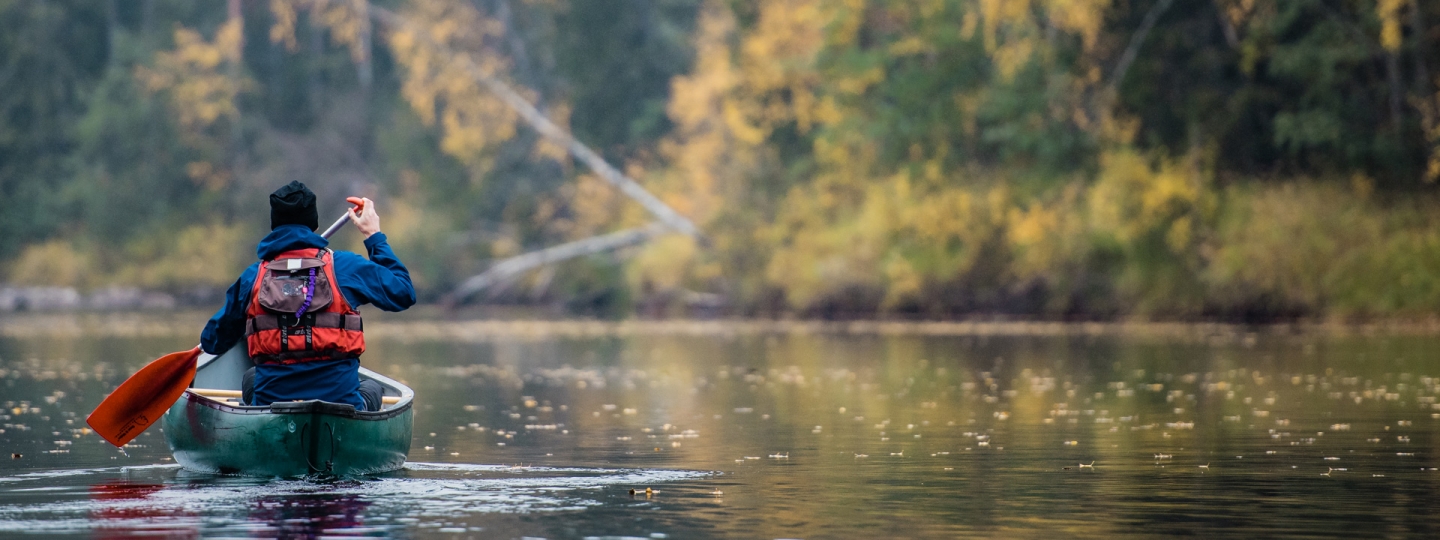
Responsible travel
By choosing ecotourism you actively contribute to nature conservation and preservation of cultural values.
One-to-one meetings
So what does it mean for Lennart to be an ecotourism entrepreneur? Well, he tells us, it provides a better experience. It grants you a greater understanding of the impressions you encounter as a guest. He takes Sámi culture as an example:
– I think it’s often something that’s there as a backdrop. It’s one of the reasons people want to visit, but often it can be difficult to meet Sámi people. What my guests get as part of the experience is spending time with Sámi people who want to, are able to, and have time to tell them about their lives. They get to ask questions that you won’t find the answer to by visiting an exhibition or a concert, he says and continues:
– There is something there, in the one-to-one meetings my guests describe, that they are very happy to have been able to experience. They get to learn a lot in the bargain, and I think that’s getting more and more important these days.
– A common denominator among all those I know who offer this kind of experience is the small scale of things and the one-to-one meetings, and that we contribute to providing new knowledge. I’m completely fascinated when I get to travel and visit other businesses involving local experts who want to and are able to tell stories about that place and its culture, about what we see and experience. It’s something that’s inspiring to be part of.
What is ecotourism?
- Ecotourism is a way to immerse yourself in nature and culture without ruining what you have come to experience and to contribute to the development of the places you visit actively.
- By choosing ecotourism, you actively contribute to nature conservation and preservation of cultural values.
- Ecotourism entrepreneurs work towards stimulating a joy of discovery and curiosity.
- Ecotourism means that all activities are adapted to the limitations of the destination, but – just like other forms of tourism – they are all about having fun and getting memorable experiences.
- There are certified companies and companies without certification. In Sweden, the main ecotourism certificate is ‘Naturens bästa‘, a quality label for ecotourism jointly created by the Swedish Ecotourism Association and Visit Sweden. There are some 60 approved businesses, of which a large number are found in Swedish Lapland.
- Choosing a certified business you are guaranteed a high-quality nature experience.
Genuine responsibility
Back in Ammarnäs Midwinter has released its iron grip of the valley and the sun has returned. It is spring winter, gidádálvve. At Ammarnäs Wärdshus, located on a hill in the middle of the village, the owner Per Jobs tells me about other activities related to the restaurant taking place during spring. It was the fishing that led him to Ammarnäs back in the days. He now runs two great establishments in Swedish Lapland, both of them with a history as well as a good reputation: Tjuonajokk at the Kaitum River in Gällivare, and this one.
“You travel to this kind of place to experience all that is unique about it: the natural surroundings, the culture, the people. That experience must remain.”
Here in Ammarnäs business has expanded since Per took over Wärdshuset, and there are other activities than fishing on the agenda. The ecotourism approach is always there as a base, whatever he or his co-workers do. It means taking responsibility, he says. He compares Ammarnäs and Tjuonajokk, two different places with different conditions. You have to be aware of the location’s inherent limitations and strengths, he says. And you have to give something back. It’s important not to wear down the surroundings or those who live there.
– There are too many tourist resorts that end up ruined. The locals are being pushed away, and nature is destroyed. What kind of experience is that? It’s not genuine.
You travel to this kind of place to experience all that is unique about it: the natural surroundings, the culture, the people. That experience must remain.
Every location is unique
Per tells me how different his businesses are. The differences between Tjuonajokk and Ammarnäs might not look big on paper, but running a business in a village is not the same as running a business in roadless land, and each place is unique.
A prerequisite to his activities in Ammarnäs being successful is that the village survives. It’s all connected, he says. He wants to help develop the place. And if you travel as an ecotourist, you contribute to the local community.
– There is another aspect to it, which is the learning that the ecotourism journey entails. We create curiosity and knowledge, and as a guest, you become aware of a reality that you didn’t know existed. What you’re not aware of, you can’t protect. We create little activists, he says.
Also read
Out of receptionAn inner journey
It can be said that Swedish Lapland truly equals ecotourism. Here you find small-scale establishments, generous hosts and proximity to nature. In Ammarnäs, it is even more tangible, where people have worked with sustainability for a long time. Many of the businesses here are ecotourism establishments. In fact, Ammarnäs has the largest number of ecotourism businesses in Sweden.
If I have not made it clear yet, I will say it again. Travelling as an ecotourist is something beyond the ordinary. Per Jobs agrees.
t– It’s about starting an inner journey. To be able to look at reality from a different perspective. That kind of experience does you good, Per Jobs concludes.


